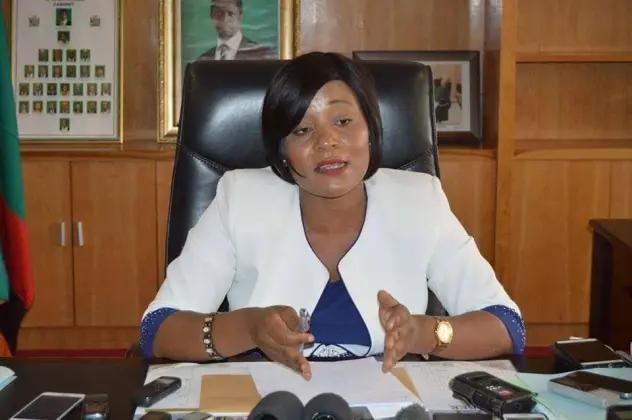Africa-Press – Zambia. KALULUSHI MP Kampamba Mulenga says she is planning on having triplets next year after the general elections, stating that IVF is able to offer that.
Her comment came after the National Assembly passed a motion on Wednesday urging government to introduce a legal and policy framework to regulate the provision of In-Vitro Fertilisation and fertility services
The motion aims to provide clear regulations for IVF services in Zambia, ensuring that couples seeking fertility treatment receive safe and standardised care.
Meanwhile, the Non-Governmental Organisations’ Coordinating Council (NGOCC) has welcomed the adoption of the motion.
Speaking in the National Assembly, Mulenga said the IVF procedure was a plus for women as it had removed the age restrictions that had prevented most women over 45 years from having children.
“IVF for us women, it is a plus, we were having difficulties. Madam Chisopa and I are planning on having triplets next year after the general elections because IVF is able to offer that. It doesn’t matter what age you are. We were restricted years back that when you reach 45 years, you cannot have children. But the good news, Madam Speaker, now with that launched, my colleague here and I will be bringing in triplets,” said Mulenga.
“For me, I believe the legal framework should not limit, it should not be a hard thing on how people should choose. But what I want to emphasise, I believe the Ministry of Health, when they come up with a legal framework, what they should not agree with is same-sex marriages. Because one, it is out of context. We are a Christian nation. Because IVF also offers children with married same-sex couples. But as Zambia, when they do the legal framework, we should really [act] according to our culture, that should be taken out”.
And Solwezi East MP Dr Alex Katakwe noted that Zambia remained limited in terms of urban clinics that had access to IVF, and also lamented the high cost.
“Madam Speaker, In-vitro Fertilisation, or IVF, is a type of assisted reproductive technology that has become a beacon of hope for countless couples struggling with infertility worldwide. However, the journey to parenthood through IVF is not just a medical process. It involves navigating a landscape of legal and ethical considerations as a branch of science. Madam Speaker, it involves the collection of reproductive cells – the sperms from a male or the eggs from a woman and then stored in banks for future fertilisation, and then later it can be implanted into the uterus of a woman who wants to have babies. Now, Madam Speaker, the history of it in Africa, with the exception of Egypt and South Africa, until 2001 there has been little or no interest in sub-fertility prevention and treatment in Africa. South Africa, for example, Madam Speaker, has well-established regulations, a comprehensive framework for fertility treatment, and a growing number of fertility clinics offering a wide range of assisted reproductive technologies and services, including in vitro fertilisation,” said Dr Katakwe.
“Madam Speaker, Zambia’s national reproductive health policy explicitly addresses infertility care, including assisted reproductive technologies such as In-vitro Fertilisation, alongside other key areas like safe motherhood, family planning and Adolescent Health. The policy emphasises the integration of infertility services into a broader framework of reproductive health delivery, recognising infertility as a significant public health concern. Despite this recognition, Madam Speaker, Zambia remains limited in terms of urban clinics that have access to IVF. In Lusaka, for example, we have the IVF clinic, and of course, recently, we have another one that has come on board. Madam Speaker, IVF costs quite a lot of money. This can range from K150,000 going up for just people who want to have babies who are produced in the lab. Madam Speaker, the procedure, of course, is quite complex”.
Meanwhile, Lundazi MP Brenda Nyirenda said this motion also looks at some of the challenges that women go through, especially if they cannot have a child.
“This motion also looks at some of the challenges that women go through, especially if they cannot have a child. Madam Speaker, the other issue that he has spoken to is the issue of exploitation and commercialisation. Madam Speaker, who can have K150,000 today to go and pay, if it fails, you go back, you pay K150,000. If us as regulators, we do not put a law to say, if you promise that at least when they pay K150,000 for the first one, if the first one fails, maybe at least it can go up to K50,000, then that way our people are going to be saved,” said Nyirenda.
“Madam Speaker, we are in this Parliament to ensure that we make laws that can help anyone. Desperation is one of the ways in which people lose most of the resources that they gather. Some people have gotten their pensions, some people have sold their properties just to try and have a child. And at the end of the day, if they sell the house, K150,000 it goes, they go, they sell their vehicle, another K150,000 because of this assertion that you can only be a proper woman if you have a child. A lot of our fellow Zambians, Madam Speaker, have lost a lot of resources, not knowing the issue of protection.”
Parliament moved to adopt the motion.
And in an interview, Friday, NGOCC Executive Director Anne Anamela noted the need to ensure that some government centres can enable people to access IVF services for free or at a lower cost, as opposed to relying only on private clinics.
“For us, this is very good, because what we want is the safety of women in all processes around reproductive health, especially reproductive health rights, and this is one of them. It is a good thing that the government wants to regulate this, because we want safety and we want women to get the best medical care, so that their lives are not compromised and are not endangered,” said Anamela.
“Indeed, it would be good to have IVF made more readily available. And also to ensure that some of these are government centres where people can access the services free or at least at a much lower cost, as opposed to private clinics. But with the establishment of IVF clinics across the country, we need a lot of education and sensitisation, because there may be some traditional practices that might frown upon this. But it would be good to do that, but with a lot of education and sensitisation as well”.
For More News And Analysis About Zambia Follow Africa-Press







